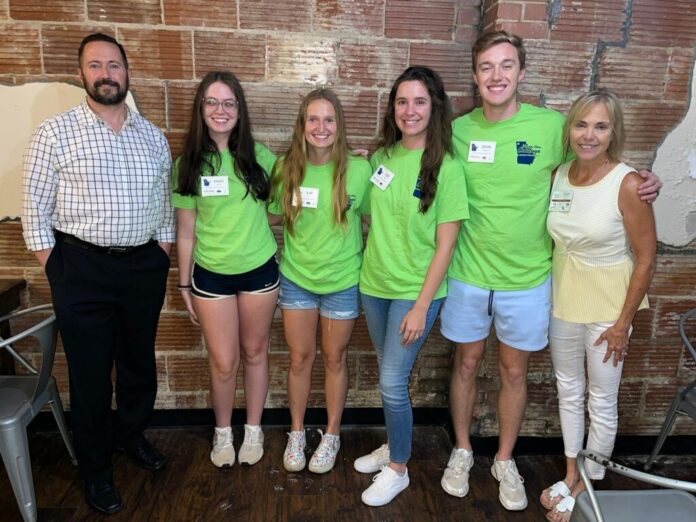
The Georgia Rural Health Innovation Center teamed up with Chattooga Georgia Initiative for Community Housing, Helping Hands Ending Hunger, and Chattooga Chamber of Commerce to complete a housing needs assessment and survey of housing conditions, such as blight, disrepair and abandoned properties, along with a community health needs assessment.
The Georgia Rural Health Innovation Center assembled a team from Mercer University to take on the project and work with local representatives in Chattooga County. In early summer, rising second-year medical student Eva Proels was joined by Zoe Bradley, a master’s pre-clinical sciences student, and pre-med student John Matthew Santander. Rounding out the team was Madi Barnett, a nursing student from Kennesaw State University.
Proels was particularly interested in participating because of her connection to Chattooga. Her mother’s family is from Lyerly, which is a few miles southwest of Summerville.
“I became involved in the project because I wanted to work on something that could make a difference for a rural population during the Mercer University School of Medicine Summer Scholars Program. I loved the idea of looking for ways to improve the health needs of the county that raised my great-grandmother, grandmother and mom,” she said.
Proels and her teammates took up residence in Chattooga and set out to assess a designated area that was slated for future improvement and development along a stretch of U.S. 27 in the Pennville and Summerville areas. This corridor included the location of Atrium Health Floyd’s new freestanding emergency room, which is now nearing completion.
Chattooga County was selected by Georgia Initiative for Community Housing to participate in an initiative to help communities improve quality of life and economic growth through housing-related solutions. A goal of the assessment project was to create a database of housing needs that would inform decisions on how to best allocate resources to improve homes in the county.
Students drove through neighborhoods and compiled data on the condition of each property. At the same time, their research process, which included community stakeholder interviews, provided the basis for a community health needs assessment.
Chattooga County Sole Commissioner Blake Elsberry said the students used criteria from the University of Georgia Carl Vinson Institute of Government and Georgia Initiative for Community Housing when looking at properties and also interviewed residents to get their input on the needs of the community.
“That information really helped show how housing is directly impacted by or because of other issues facing the community as a whole,” he said. “They really showed with their study how there are so many factors that are interconnected to housing.”
There was overlap in the housing survey and the health needs of the community, as unsafe housing can be detrimental to one’s health, Proels said.
“The surveys and interviews combined helped me to understand challenges that would have to be overcome in the community before new health care plans and care centers could be implemented successfully,” she said.
Completing the project was no small feat. In just nine days, these four students collected data on more than 2,000 properties, with 1,100 of those properties in the main target area of Pennville alone.
The significance of students’ participation showed that partnerships help make projects such as this successful in rural communities with limited resources, Elsberry said.
“They went past just getting housing information and really dug into the makeup of the community,” he said.









